Common Baby Digestive Problems That You Need To Know

“Being a mother is learning about strengths you didn’t know you had and dealing with fears you didn’t know existed.” – Linda Wooten
With great power comes great responsibility. Who would know this better than a mother who sacrifices all her comforts for her little one? When your baby’s health is on priority, you will go to any extent to ensure everything is right in the place where it is supposed to be. Therefore, whether it is the feeding, sleep, potty or bathing schedules, or even timely burping, there’s nothing that can divert a dedicated mother. However, some health problems, like infant digestive problems, might suddenly show signs unexpectedly. This article guides you through a few tips to overcome some commonly-faced digestive problems in tiny tots.
Digestive Problems in Infants
When do infants’ digestive systems mature? An infant’s digestive system typically begins to mature around 6 to 12 months of age, though full maturity can take up to 2 to 3 years. Till then, digestive problems in infants are common and can cause discomfort for both the baby and parents. Understanding how to manage these digestive issues in newborns can help soothe symptoms and ensure your little one feels more comfortable.
1. Reflux
Newborns have delicate machinery for digestion which evolves with time and growth. The oesophageal sphincter, which is the valve that prevents food from the stomach to return into the food pipe, is still developing in babies, making spit-ups and reflux a common digestive problem. Although it can cause quite some anguish to new parents, a known fact is that acid reflux subsides on its own between 4 to 12 months. In extreme cases, medical intervention is needed.

What Can You Do?
- Feed the baby in an upright position.
- Try making the baby burp as frequently as possible during feeds.
- Feed smaller portions of formula or breast milk. Increase the frequency of feeding sessions to ensure adequate nutrition is still being provided. Remember, you would rather have your child finish the bottle in two sittings than throw up the entire feed in one.
- Try to keep the baby in an upright position for at least half an hour after feeds.
When to Call a Doctor
Reflux is common in newborns, and not to be worried about. However, reflux disease that has the signs mentioned below needs immediate medical attention as it can deter the regular feeds, and in turn, hinder satisfactory meals for your baby.
- Loss of appetite
- Slow weight gain
- Breathing problems
2. Vomiting
Vomiting is stressful for adults and naturally, traumatic for babies. Most common causes of vomiting in babies are viral or bacterial infections. While you can continue feeding milk or formula to your child to help her cope with the loss of fluids, here are a few additional things you can do to comfort her.

What Can You Do?
Continue to feed your baby but in shorter feeds rather than long ones. This will keep her hydrated through the day. If she starts refusing feeds, consult your paediatrician, and offer her oral rehydration remedies.
When to Call a Doctor
Call your paediatrician if –
- Smaller feeds and electrolyte supplements don’t seem to give any respite, and your baby continues to look uneasy or dehydrated.
- Vomit carries bile stains which are greenish in colour.
- Vomit has bloodstains.
- Baby has repeated, projectile or forceful vomits.
- Vomiting is accompanied by diarrhoea, indicating a viral or bacterial infection.
3. Gas
It is natural for a baby to suck in a lot of air during the initial months of feeding. With time and evolved expertise, the amount of air intake goes down. However, for an infant who hasn’t started moving about yet, the trapped-in air doesn’t find a straightforward way for elimination.
What Can You Do?
It has been observed that gas troubles ease as the baby turns about 3-4 months old or starts turning on her own. This development helps naturally get rid of any trapped gas in her bowels. It also helps if you:
- Massage your baby’s tummy.
- Bicycle her legs gently to help release any trapped air.
- Ensure tummy time under your supervision. However, give ample gap between feeds and tummy time to avoid any spit-ups.
- If you are feeding from the bottle, ensure you use the right nipple size to reduce the quantity of air sucked in.

When to Call a Doctor
If your baby appears uneasy despite trying out all the remedies you know, it would be wise to consult your doctor for any required check-ups.
4. Diarrhoea
Diarrhoea is one of the most dreaded yet most common paediatric gastrointestinal disorders. It can cause babies to have frequent watery or loose motions, which can quickly lead to severe dehydration and should be addressed immediately. Rotavirus is the most common culprit for this ailment and hence, is advised as one of the vaccinations for babies in their initial months.
What Can You Do?
Ensure that your baby stays hydrated by continuing to offer small but frequent feeds of milk or formula. Try to cut down on solids temporarily until her stomach gets some rest.

When to Call a Doctor
If diarrhoea doesn’t seem to stop after a few days, you would need to consult a paediatrician for medication. However, do not wait to consult if you see the following signs in your baby:
- The child seems uneasy.
- Seems dehydrated with indications of dry skin and a dry mouth.
- Has sunken eyes.
- Is overall lethargic.
5. Colic
Colic is a term for unexplained cranky behaviour in infants. Contrary to common belief, there is no concrete evidence that colic is related to gas or indigestion. Medically, a child that goes into inconsolable crying bouts of up to 3 or 4 hours, three or more times a week, typically in the evenings; is believed to be colicky.
What Can You Do?
- Baby-Wearing: The most natural way of comforting your infant is to keep her close to you. Baby-wearing is found to be one of the most helpful ways for a parent to keep a distressed baby close to you while you can get some work done through the day.
- Physical Touch: Studies have indicated that colic cries may also be the child’s way of expressing extreme distress or the simple need for attention. Research shows that crying children have calmed down much more quickly when in direct contact with a parent.
- Daily Routine: Colicky babies benefit a great deal from a timely routine which helps them deal with the new world and atmosphere in a more predictable way.

When to Call a Doctor
If you feel that your child’s colicky behaviour isn’t going away even after 3 months of age, it would be good to consult your doctor to discuss any investigative procedures to rule out any underlying medical conditions.
6. Constipation
Hard stools at an early stage are caused when digestive systems work hard to absorb nutrients and excrete waste. Indigestion in babies can sometimes become worse when babies start solids.
What Can You Do?
- Ensure that your baby is getting plenty of fluids in the form of milk or formula.
- Cut down on cereals until the situation eases.
- Offer some natural laxatives such as prune juice.

When to Call a Doctor
Constipation may need to be treated if:
- Your baby seems very uncomfortable while passing stools.
- Stools are blood-streaked
- Your baby can’t pass stools.
7. Digestive System Abnormalities
Sometimes babies may be born with genetic abnormalities in their digestive systems which may need medical intervention and even corrective surgeries.
What Can You Do?
While these abnormalities are rare, they need to be checked if you observe unexplained digestive issues with your little one.
When to Call a Doctor
- Gastroesophageal reflux can sometimes be caused due to abnormalities of the oesophagus, which causes the stomach contents to flow back into the oesophagus. Hence, this should be ruled out if the baby has repeated reflux issues.
- If severe vomiting is observed in the baby despite medication, a medical investigation may be needed to rule out any abnormalities of the stomach.
- If you observe your infant’s vomit to be bile stained, i.e. Greenish, it must immediately be reported to your doctor for verification of any abnormalities of the intestines known as Malrotation with Volvulus.

Tips to Improve Baby’s Digestion
Ensuring your infant’s digestive system is healthy is essential for their overall well-being. Here are some helpful tips to promote better digestion for your little one:
1. Burp Your Baby After Feeding
Burping helps release air bubbles that babies swallow during feeding, which can accumulate in the stomach and lead to discomfort, gas, or colic. Burp your baby every few minutes during feeding and after, ensuring they have time to expel any trapped air.
2. Try Smaller, Frequent Meals
Feeding smaller portions more frequently helps prevent overfeeding, which can overwhelm a baby’s digestive system and lead to indigestion, gas, or spit-ups. Offering meals more frequently in smaller amounts allows their tiny stomach to process food more efficiently, reducing digestive distress.
3. Massage Your Baby’s Tummy
Gently massaging your baby’s tummy in a clockwise motion can help stimulate bowel movement, alleviate constipation, and relieve trapped gas. Regular tummy massages can also enhance blood circulation and relax the baby, making digestion smoother and more comfortable.
4. Keep Baby Upright After Feeding
Holding your baby in an upright position for 20-30 minutes after feeding can help reduce the risk of acid reflux, spit-ups, and other digestive issues. Gravity helps food move smoothly down the digestive tract, preventing the regurgitation of milk and promoting better digestion.
5. Choose Breast Milk or Easy-to-Digest Formula
Breast milk is naturally easier for babies to digest and contains beneficial enzymes and antibodies that support gut health. If formula-feeding, consider choosing a formula designed for sensitive tummies, as these are made with gentle ingredients that reduce digestive problems like constipation or gas.
6. Monitor for Food Sensitivities
Some babies may experience digestive discomfort due to sensitivities or allergies to certain foods in their diet or the mother’s diet if breastfeeding. Keep a food diary and monitor for any patterns of discomfort, such as gas, bloating, or changes in stool, and consult a pediatrician to adjust the feeding plan if necessary.
FAQs
1. Can digestive issues affect a baby’s sleep?
Yes, digestive problems like gas, reflux, or colic can disrupt a baby’s sleep patterns. When babies experience discomfort, they may have difficulty falling asleep or staying asleep, leading to fussiness during naps and nighttime.
2. Does a baby’s digestive system produce the same enzymes as adults?
No, a baby’s digestive system initially produces fewer digestive enzymes, especially those needed for breaking down complex carbohydrates and proteins. This is why certain foods, like beans or dairy, can cause gas or bloating in infants and are best introduced when the digestive system matures.
3. Can antibiotics disrupt a baby’s gut flora?
Yes, antibiotics can disrupt the balance of gut bacteria in a baby’s digestive system. While antibiotics treat infections, they can also kill beneficial bacteria in the intestines, leading to diarrhea or digestive issues. Probiotics, under a doctor’s guidance, can sometimes help restore gut balance.
4. Is it normal for babies to regurgitate through their nose?
Yes, it can happen. Due to the immaturity of their digestive system, some babies may regurgitate milk through their nose if they have reflux or swallow too much air during feeding. While it looks alarming, it is generally harmless and resolves as the digestive system matures.
While there is always scope for the unexpected, it is best to always be prepared. The joy of becoming a parent is soon overcome by all the minute troubles your little one faces. Right from indigestion in babies to paediatric gastrointestinal disorders, we hope we’ve helped you understand the most common digestive problems in babies and how to tackle them.
References/Resources:
1. Gastrointestinal Problems; Stanford Medicine; https://www.stanfordchildrens.org/en/topic/default?id=gastrointestinal-problems-90-P02216
2. Gastrointestinal Problems; University of Rochester Medical Center; https://www.urmc.rochester.edu/encyclopedia/content.aspx?ContentTypeID=90&ContentID=P02216
3. Abdominal Pain in Infants: 8 Possible Reasons Your Baby’s Tummy Hurts; American Academy of Pediatrics; https://www.healthychildren.org/English/health-issues/conditions/abdominal/Pages/Abdominal-Pains-in-Infants.aspx
4. Vandenplas. Y, Hauser. B, Salvatore. S; Functional Gastrointestinal Disorders in Infancy: Impact on the Health of the Infant and Family (Pediatric Gastroenterology, Hepatology & Nutrition); National Library of Medicine; https://www.ncbi.nlm.nih.gov/pmc/articles/PMC6506429/; April 2019
5. Acid Reflux (GER & GERD) in Infants; NIH; https://www.niddk.nih.gov/health-information/digestive-diseases/acid-reflux-ger-gerd-infants
6. Reflux in Babies; Cleveland Clinic; https://my.clevelandclinic.org/health/diseases/reflux-in-babies
7. Diarrhea in Babies; American Academy of Pediatrics; https://www.healthychildren.org/English/ages-stages/baby/diapers-clothing/Pages/Diarrhea-in-Babies.aspx
Also Read:
Hing for Babies
Arsenic in Babies Food
Home Remedies for Loose Motion in Babies
Natural Remedies for Acid Reflux in Infants
Home Remedies to Improve Digestion in Babies and Toddlers
Was This Article Helpful?
Parenting is a huge responsibility, for you as a caregiver, but also for us as a parenting content platform. We understand that and take our responsibility of creating credible content seriously. FirstCry Parenting articles are written and published only after extensive research using factually sound references to deliver quality content that is accurate, validated by experts, and completely reliable. To understand how we go about creating content that is credible, read our editorial policy here.








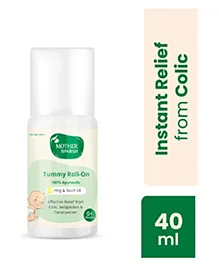
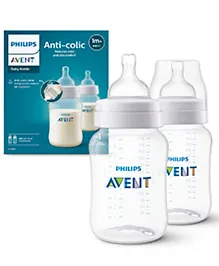


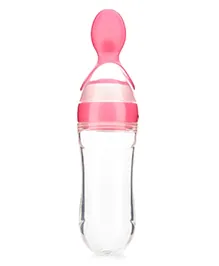
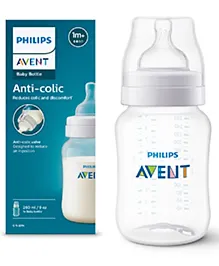
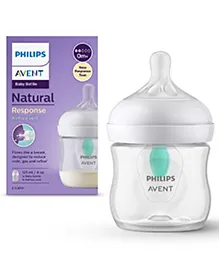










.svg)


















